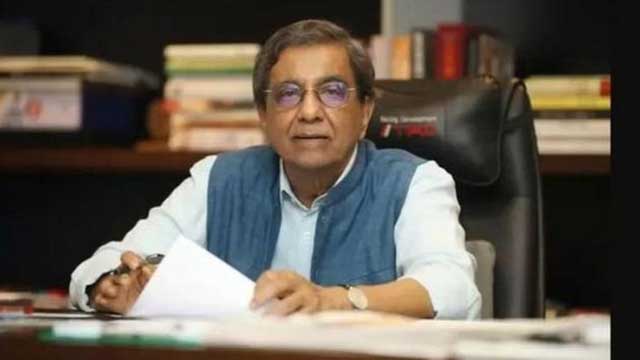Supreme Court lawyer and Bangabandhu Chhattra Foundation chief executive Abdul Malek on Wednesday filed a case with Ramna police station against Bangla national daily Prothom Alo editor and publisher Matiur Rahman, its savar correspondent Shamsuzzaman Shams, unnamed photojournalist and several others under the Digital Security Act for a report published on the Independence Day.
The case was filed at about 11:45pm on Wednesday also against the people who liked, commented on and shared the social media post of the news item on commodity price.
Ramna police station officer-in-charge Inspector Abul Hasan confirmed the filing of the case.
The plaintiff and pro-Awami League lawyer Abdul Malek said that he filed the case with the Ramna Pilice station as he noticed the screenshots of report on social media through his mobile phone on March 26 night while he was in Ramna area.
He filed the case under sections 25(2), 31 and 35 of the Digital Security Act and alleged that the news was published to create an unstable situation in the country by destroying ‘the present peaceful situation’ in Bangladesh.
Shamsuzzaman, the paper’s Savar correspondent, was sued in a separate case under the DSA on Wednesday afternoon, around 10 hours after being picked up from his house near Jahangirnagar University in Savar by members of the Criminal Investigation Department of police.
That case was filed with Tejgaon police station by one Golam Kibria, a resident of Mirpur in the capital and a leader of ruling Awami League’s youth front Juba League, accusing Shams of publishing a fake and fabricated news on the country’s Independence Day.
Section 25 of the DSA criminalises publishing or propagating ‘any information with the intention of tarnishing the image of the nation,’ as well as knowingly publishing false or distorted information.
Section 31 refers to publishing or propagating in digital format any file that creates ‘hostility, hatred or adversity among people or destroys communal harmony or creates unrest or disorder or deteriorates or threatens to deteriorate law and order’ in the country.
Section 35 covers aiding or abetting any of the offences listed under the act.





